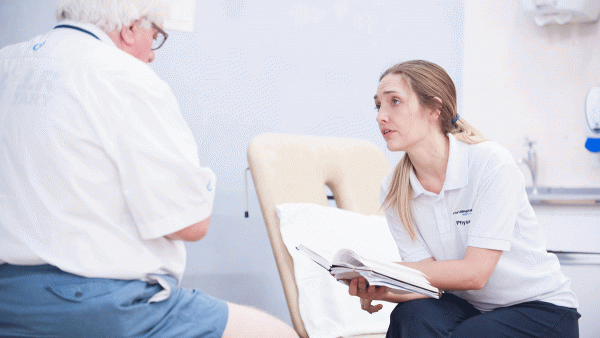If you're experiencing bladder or bowel incontinence, you don't need to put up with it - your doctor of physiotherapist can help you

Where can I get help?
It is important to ask for help if you have urinary or anal incontinence. Although these problems are common, they can be improved with the right treatment and advice, and should not be ‘put up with’ in silence. Speak to your GP in the first instance.
They should advise you to see a specialist physiotherapist with experience of the management of bladder and bowel incontinence. You can also find a physiotherapist using the links below.
What can physiotherapists do?
Physiotherapists who see people with bladder or bowel problems have had very specialist training and they are used to treating these problems. They will help you understand why you are having difficulties with bladder and bowel control, and discuss treatments that might help you.
Many people improve with simple advice and exercises. These will be specific to your needs and your physiotherapist will help you to be able to manage the problem. Physiotherapists will see you in a room in privacy and you can bring someone with you for support if you want to.
What happens when you see a specialist physiotherapist?
When you first meet your physiotherapist you may want to tell them how your problems affect your lifestyle and activities. They may want to ask you some more detailed questions to get an idea of how they can help you. Everything you tell the physiotherapist will be completely confidential.
An internal examination to find out how effective the muscles are around your bladder and bowel (pelvic floor muscles) will usually be required. Your physiotherapist will discuss this with you in detail and the examination will only take place with your permission. You may have a chaperone with you during this examination if you wish. Your physiotherapist has specialist training to perform this type of examination.
Planning a treatment plan with your physiotherapist
After talking about your problems and the examination, the physiotherapist will plan a treatment program with you. Your physiotherapist will teach you how to use your pelvic floor muscles correctly and show you exercises to improve them. They will also discuss possible lifestyle changes such as toilet, fluid and dietary advice which will help you manage the problem.



